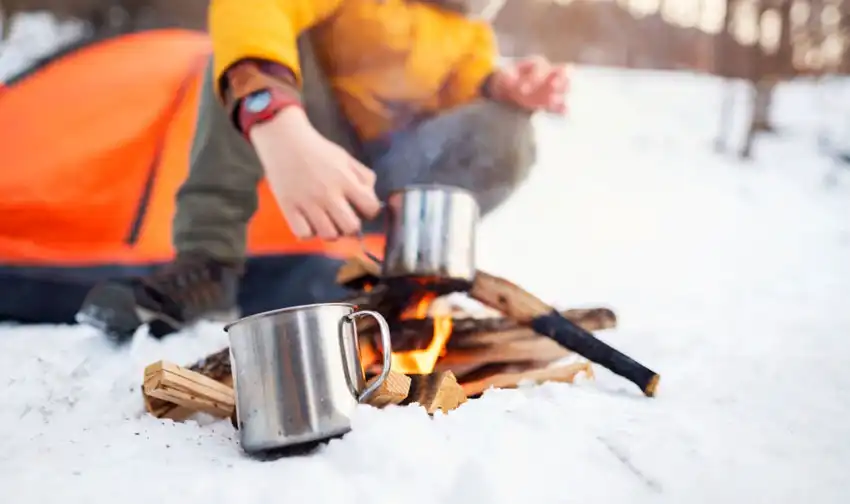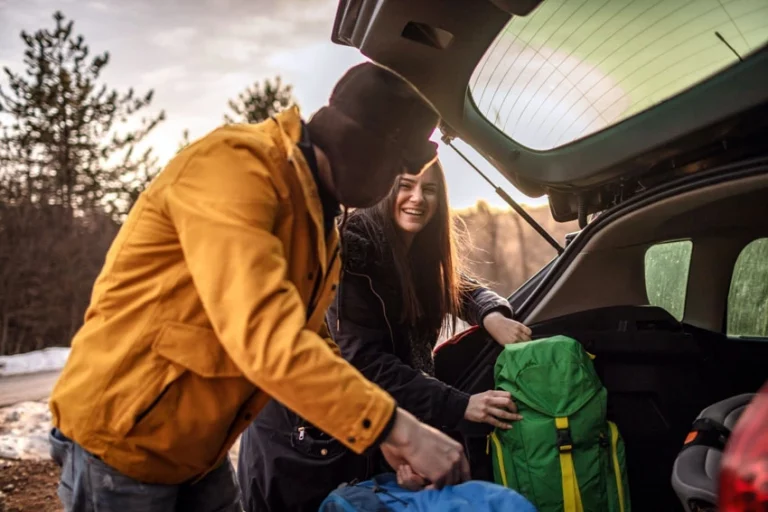Winter camping is an adventure that requires adequate preparation and planning. One of the most critical aspects of a successful winter camping trip is packing. Packing for a winter camping trip can be a daunting task, but with the right approach, it can be fun and enjoyable.
In this article, we will provide you with a comprehensive guide on how to pack for a winter camping trip like a pro. We will cover everything from the essential gear to clothing, food, and safety precautions.
Understanding the Climate
The first step in packing for a winter camping trip is to understand the climate of your destination. Research the average temperatures, snowfall, and weather patterns to get a sense of what you’ll be facing. Keep in mind that temperatures can vary widely depending on elevation and location, so it’s important to be prepared for a range of conditions.
Plan Ahead and Make a Checklist
Before packing for a winter camping trip, it’s essential to have a plan and make a checklist. This will help you stay organized and ensure that you don’t forget anything. Start by researching the area you will be camping in and find out the weather conditions to anticipate. Make a list of all the gear and clothing you will need for the trip. Having a checklist ensures that you have all the necessary items, and you don’t end up overpacking or underpacking.

Essential Gear and Clothing
When it comes to winter camping, it’s all about staying warm and dry. Here are some key items you’ll need to pack:
- A four-season tent designed for cold weather camping
- A sleeping bag rated for the coldest temperatures you expect to encounter
- A sleeping pad to insulate you from the ground
- Warm, moisture-wicking base layers
- Insulated mid-layers, such as fleece or down jackets
- Waterproof outer layers, including a shell jacket and pants
- Warm gloves and a hat
- Insulated, waterproof boots
- A backpack designed for winter camping, with plenty of space for your gear
Tips for Packing Efficiently
Packing for a winter camping trip can be a challenge, but there are a few tips that can help you pack efficiently:
- Make a packing list and check it twice
- Use compression sacks to save space
- Pack items in order of priority, with the most essential items at the top
- Minimize duplicate items
- Pack items that can serve multiple purposes, such as a bandana that can be used as a washcloth, bandage, or hat
Essential Gear
When it comes to winter camping, having the right gear is critical. Your gear should be lightweight, durable, and able to withstand harsh winter conditions. The following are the essential gear items you will need for a winter camping trip:
Tent and Sleeping Gear
A high-quality tent is crucial to keep you warm and dry during your winter camping trip. Look for a four-season tent that can withstand heavy snow and strong winds. Also, ensure that your sleeping bag and sleeping pad are suitable for cold weather conditions.
Cooking Gear
Cooking during winter camping requires specialized gear that can handle low temperatures. A portable stove, campfire cookware, and fuel are essential for cooking meals in the winter.
Lighting and Navigation
Winter nights are long, and having a reliable source of light is essential. A headlamp, lantern, and spare batteries should be on your winter camping gear list. Navigation tools such as a compass and maps are also critical for navigating during winter camping.
Clothing
Winter camping requires proper layering to keep you warm and dry. The following are the essential clothing items to pack for a winter camping trip:
Base Layers
Base layers are the foundation of your winter clothing. Choose moisture-wicking fabrics that keep you dry and warm, such as wool or synthetic materials.
Insulation Layers
Insulation layers provide warmth and help trap heat. Fleece jackets, down jackets, and vests are excellent choices for insulation layers.
Outer Layers
Outer layers protect you from wind, snow, and rain. Look for a waterproof and breathable jacket and pants.
Accessories
Accessories such as hats, gloves, and scarves are essential for keeping extremities warm. Choose materials that are water-resistant and provide insulation.
Read more: Top 10 Tents for Tall Trekkers
Food and Water
Winter camping requires a lot of energy, and having enough food and water is crucial. Pack high-energy snacks, such as nuts, dried fruits, and jerky. Also, ensure that you have enough water to stay hydrated, and bring a portable water filtration system in case of emergency.
Safety Precautions
Winter camping can be hazardous, and it’s essential to take safety precautions seriously. The following are some safety tips to keep in mind:
Tell Someone Your Plans
Before embarking on a winter camping trip, inform someone of your plans, including your route and expected return date.
Bring a First-Aid Kit
A first-aid kit is essential for treating minor injuries and illnesses. Pack items such as bandages, antiseptic, and pain relievers.
Check the Weather Forecast
Check the weather forecast before your trip to anticipate any potential hazards, such as heavy snow or strong winds.
Know the Signs of Hypothermia
Hypothermia is a serious condition that can occur when your body temperature drops below normal levels. Know the signs of hypothermia, such as shivering, confusion, and slurred speech, and take immediate action if someone shows these symptoms.
Practice Fire Safety
When camping in the winter, fire is essential for warmth and cooking. However, it’s essential to practice fire safety to avoid accidents. Always use a fire pit or fire ring, and keep a bucket of water or sand nearby in case of an emergency.
To know more: Most Popular Hot Tenting Destinations in the United States
FAQs
Can I use a regular tent for winter camping?
No, regular tents are not designed for winter camping and may not provide adequate insulation and protection from the elements.
Do I need snowshoes for winter camping?
It depends on the depth of the snow and the terrain you will be camping in. If the snow is deep, snowshoes are necessary to avoid sinking and getting stuck in the snow.
Can I bring my regular cooking gear for winter camping?
No, regular cooking gear may not function properly in low temperatures. It’s essential to use specialized gear designed for winter camping.
How do I keep my water from freezing during winter camping?
Insulate your water bottles or hydration packs with a wool or neoprene sleeve, and keep them close to your body to prevent freezing.
What should I do if I get lost during winter camping?
Stay calm, stay put, and wait for rescuers. Don’t wander around, as this may make it more challenging for rescuers to find you.
How many layers should I wear when winter camping?
It’s generally best to wear three layers: a base layer, a mid-layer, and an outer layer. You can adjust the number of layers depending on the temperature.
What should I do if my gear gets wet?
Dry it out as soon as possible to prevent hypothermia. If you have a fire, try to dry your gear near it (but not too close). You can also try to dry your gear with body heat, or by wearing it inside your sleeping bag.
Conclusion
Packing for a winter camping trip requires adequate preparation, planning, and attention to detail. Having the right gear, clothing, food, and safety precautions can make all the difference in ensuring a successful and enjoyable winter camping experience. By following the tips and guidelines in this article, you can pack for your winter camping trip like a pro and enjoy all the beauty and adventure winter camping has to offer.

Anthony is a passionate outdoor enthusiast with a love for adventure and exploring the great outdoors. With years of experience hiking, camping, and rafting, he has a wealth of knowledge to share with others. Anthony’s writing captures the essence of his experiences, offering readers insights into some of the most beautiful and breathtaking landscapes in the world. Follow his journey and join the conversation as he continues to share his passion for the great outdoors.

